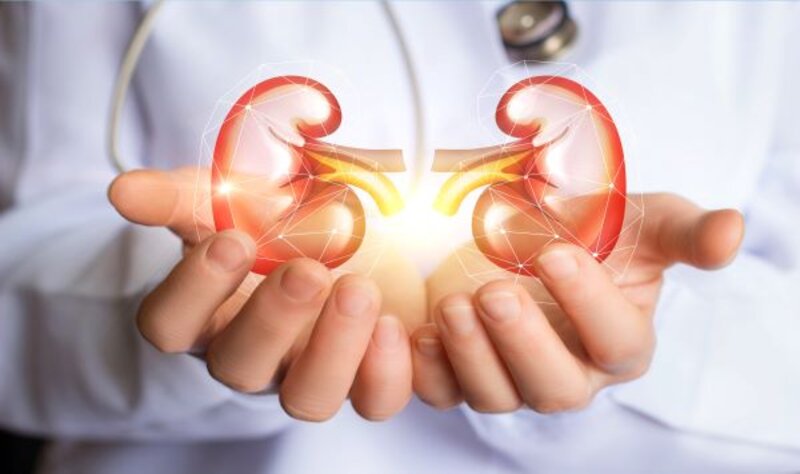Genetic changes promote aggressive kidney cancer
Oncology research(14.02.2025) Rare genetic mutations have a major impact on the development and progression of kidney cancer. The results enable new approaches in research and therapy
Researchers at the University Medical Center Freiburg have investigated rare genetic mutations, so-called "non-stop mutations", which occur in certain tumor suppressor genes and can promote the development of kidney cancer. The results, published in the journal Science Advances on February 14, 2025, show how these mutations influence protein production and can lead to severe disease progression. The VHL and BAP1 genes, which are crucial for controlling cell growth, are particularly affected. The findings could lead to improved diagnostic and therapeutic options for patients in the long term.

Researchers at the University Medical Center Freiburg have investigated rare genetic mutations that can promote the development of kidney cancer. ©AdobeStock
Better understanding the progression of cancer
"Our research shows that non-stop mutations not only impair the stability of the affected proteins, but also massively disrupt their production and function," says Prof. Dr. Sven Diederichs, who heads the Department of Oncological Research in the Department of Thoracic Surgery at the Freiburg University Medical Center and is a scientist at the Freiburg partner site of the German Consortium for Translational Cancer Research (DKTK). "These new insights open up exciting possibilities for us to take targeted action against such mutations and to better understand the progression of cancer." The project was funded by the DFG and associated with the Freiburg CRC 1453 "Nephrogenetics".
Altered protein production as a central disease mechanism
Non-stop mutations occur when a genetic "stop command" at the end of a gene is missing. As a result, proteins are elongated or incorrectly folded, which can impair their function. The study showed that these mutations have different effects in the VHL and BAP1 genes: While the proteins of VHL are rapidly degraded, the mutation in BAP1 leads to a reduced efficiency of protein production. Both mechanisms contribute significantly to the development and progression of kidney cancer.
To investigate the effects of the mutations, the researchers used a combination of precise genome editing and protein analysis in cell models. They found that the elongated proteins are unstable or cannot be synthesized correctly. Especially in patients with an inherited mutation in the VHL gene, early and aggressive disease progression was observed, underlining the importance of the mutation for clinical practice.
Outlook: New approaches for personalized therapies
The findings on the role of non-stop mutations in tumor biology could open up new avenues for treatment in the long term. The targeted use of proteasome inhibitors or other therapeutic strategies could help to mitigate the effects of mutations. Genetic tests could also help to identify patients at risk at an early stage and treat them individually.
Original title of the publication: Nonstop mutations cause loss of renal tumor suppressor proteins VHL and BAP1 and affect multiple stages of protein translation
DOI: 10.1126/sciadv.adr6375
Link to the study: https: //pubmed.ncbi.nlm.nih.gov/39937911/
More interesting articles
University Medical Center Freiburg
Central InformationPhone: 0761 270-0
info@uniklinik-freiburg.de
Corporate Communications
Breisacher Straße 15379110 Freiburg
Phone: 0761 270-84830
kommunikation@uniklinik-freiburg.de



